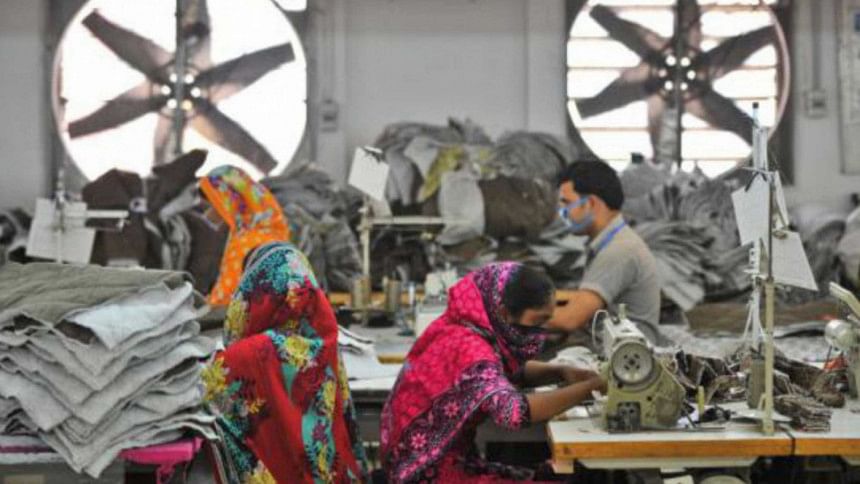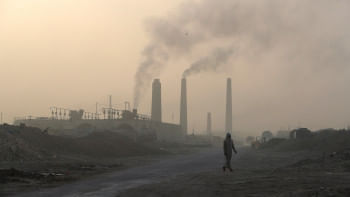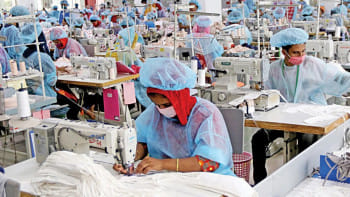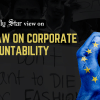Time for fashion brands, retailers to rethink green strategies

Fashion brands have spent almost two decades attempting to use sustainability as a marketing tool, with varying degrees of success. For many, launching any new product will have a "green" angle to it. Sustainability sells—at least that is what we have always been led to believe. But does it, really? My guess is that most consumers still value qualities such as style, fit, value for money and choice above all else. They also have their favourite brands that they stay loyal to through thick and thin. Take, for instance, the remarkable success of sports giants Adidas and Nike in dominating the global market for sporting apparel for so long. Building a strong brand is critical to business success.
However, over the past two or three years, we have seen a huge backlash against sustainability marketing in the West. The word "greenwashing" has become commonplace, and there is a growing lack of trust around brands and the claims they are making about their apparel products. Some brands have been reported for making misleading or false claims about their clothing collections. Some are facing potential fines. All are now considering how to approach this subject. Is it worth making green claims if the risk is accusations of greenwashing, bad publicity and reputational damage? At what point will brands begin to think that the drawbacks outweigh the positives? Might we see more "greenhushing" moving forward?
The problem they all face is that, as their output grows, their supply chain emissions increase. In the absence of a rapid shift to renewable energy in supply chains, it is a thankless task. The net result of all this is that in about five years or so, the fashion industry will have to make radical changes in supply chains in order to reduce carbon intensity in line with protocols such as the Paris Agreement. If they cannot do this, the backlash from consumers, regulators and investors alike will be huge.
I think we may already be reaching that stage already. Aside from the fact that the benefits of green marketing are negligible anyway, there is another issue to consider: supply chains. Most major fashion brands have now set targets to reduce carbon emissions in their supply chains (tier 3). Many have set science-based targets on these issues, and this is an area which investors and regulators alike are watching closely. Brands are under a huge—and growing—level of scrutiny on this topic.
While fashion brands are often criticised for not financially supporting the green transition in supply chains, major brands are committing time to reduce the carbon impact of their supply chains. This is logical because if they fail on this issue, there will be serious questions to answer when we hit key milestones related to sustainability and green transition.
I closely follow the sustainability reporting of fashion brands and retailers. Most are now reporting in great detail their progress around reducing CO2 emissions. In some cases, they are achieving great success in this area, but mainly this is in their own operations, such as retail stores. These emissions are a tiny part of a brand's total emissions—often less than 10 percent.
When it comes to reducing emissions in supply chains, brands have not been quite so successful. Some are making progress in this area but, for most, it is a case of two steps forward, three steps back. Many major brands set CO2 reduction targets before the pandemic. Since then, their supply chain emissions have gone up.
The problem they all face is that, as their output grows, their supply chain emissions increase. In the absence of a rapid shift to renewable energy in supply chains, it is a thankless task. The net result of all this is that in about five years or so, the fashion industry will have to make radical changes in supply chains in order to reduce carbon intensity in line with protocols such as the Paris Agreement. If they cannot do this, the backlash from consumers, regulators and investors alike will be huge.
So many fashion brands are now playing catch-up because they have been unable to move the needle on supply chain emissions in the past five years. It would not be a surprise to see some of the relevant goals getting an extended deadline, but I am not sure this will go down well with investors and consumers.
I believe that while consumers may not care too greatly for products packaged in a "green" way, they do take notice of broader climate issues. There will come a point when the public at large will begin to look for people to blame, and large retailers with carbon-intensive supply chains will be high on the list. So brands need to be ready; they need to be seen doing all they can to cut their carbon footprint, and woe betide those who miss the critical 2030 targets.
So perhaps it is time to forget eco fashion and green claims by brands and retailers. As we move forward, green marketing could be less about products and more about the energy and emissions used in the production of clothing. This could spell opportunities for progressive suppliers.
Mostafiz Uddin is the managing director of Denim Expert Limited. He is also the founder and CEO of Bangladesh Denim Expo and Bangladesh Apparel Exchange (BAE)..
Views expressed in this article are the author's own.
Follow The Daily Star Opinion on Facebook for the latest opinions, commentaries and analyses by experts and professionals. To contribute your article or letter to The Daily Star Opinion, see our guidelines for submission.

 For all latest news, follow The Daily Star's Google News channel.
For all latest news, follow The Daily Star's Google News channel. 










Comments